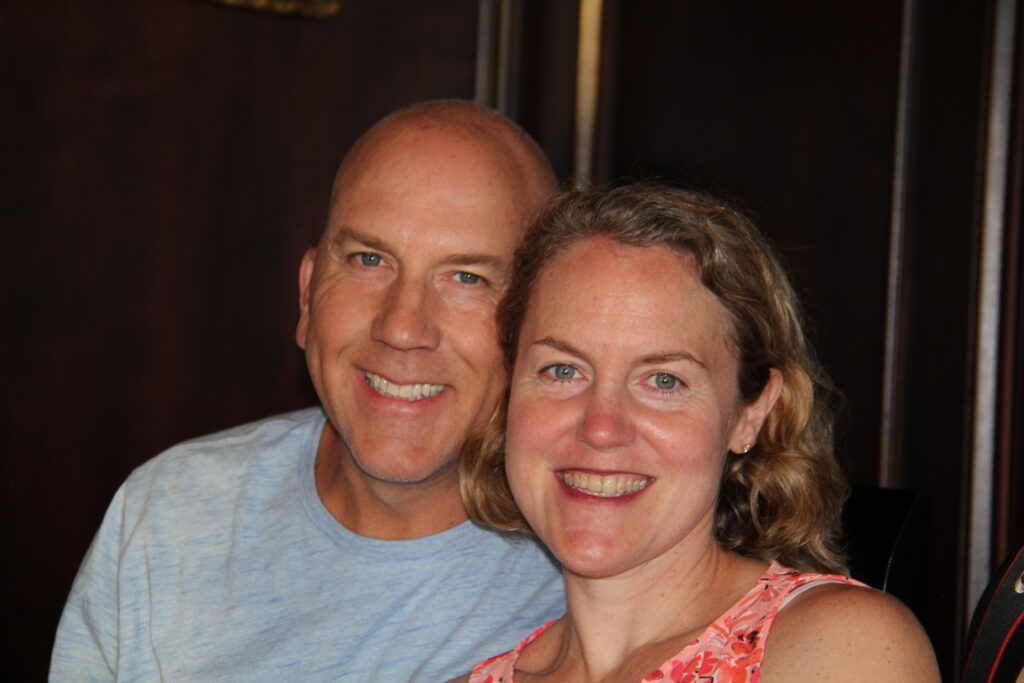- Search
- |
- Learning Portal
- |
- Support Center
- |
- Store Account
- |
- Store
- |
- $0.00
- n a v
An Interview with Kristy Rauch
In this interview, get to know Kristy Rauch, who serves as Collaborative Classroom’s Manager of Educational Partnerships in Indiana and Illinois.


Tell us a little about your background as an educator. What did you do before you joined Collaborative Classroom?
I began my career as a high school English teacher. Then I went back to school to get a master’s degree in Educational Policy.
From there, I worked as Vice President of Training and Programs at The Change Companies, a publishing company where I wrote a substance abuse prevention curriculum.
That led me next to CASEL, the Collaborative for Academic, Social, and Emotional Learning, where I was a Program Specialist. It was an exciting time to be at CASEL. Illinois was then the first state in the country to pass legislation that authorized the creation of K–12 SEL standards.
My work at CASEL ultimately brought me to Collaborative Classroom.
How did you find out about Collaborative Classroom and the Manager of Educational Partnerships role?
It was a CASEL connection, in fact! I’d worked with Mary Tavegia, one of Collaborative Classroom’s professional learning leads, when she was a principal of an elementary school in Illinois using Caring School Community. Her school was part of CASEL’s “Collaborating Sites Project” which was a multi-year grant to establish model sites of SEL programming in nine schools and districts in Illinois. We developed a strong bond while working together on a number of SEL projects related to assessment and principal leadership.
We kept in touch over the years. One day she mentioned that Collaborative Classroom (at the time it was still Developmental Studies Center) was hiring!
Collaborative Classroom is a mission-driven nonprofit. What about our mission drew you to the organization? What’s your “why” for joining Collaborative Classroom?
In the world of education, it’s rare to find an organization so steadfast in its mission.
I am always proud to share that Collaborative Classroom has spent over 40 years making it possible for teachers to integrate social and emotional learning into their academic teaching. CASEL’s often-cited meta-analysis makes clear that all students benefit when they are encouraged to develop both cognitively and socially.
What’s your favorite part of your role as a Manager of Educational Partnerships?
My favorite part is visiting classrooms where I get to see firsthand the power of Collaborative Classroom’s curriculum in action as students read, write, and collaborate together.
My favorite part is visiting classrooms where I get to see firsthand the power of Collaborative Classroom’s curriculum in action as students read, write, and collaborate together.
I was recently in a 2nd grade classroom with a lively small group of students debating the best approach to an open word sort. This microcosm of learning revealed evidence of social skills like listening and turn-taking, as well as the academic skills of sorting words based on vowel patterns, inflectional endings, and word types.
It makes me smile even now as I recall the confidence and independence of these students to direct their own learning.
What are some other projects or passions in your career?
As someone who did not teach at the elementary level, I have appreciated the opportunity to learn more about foundational skills instruction, the science of reading, and how to best support teachers of early literacy.
In your role, you get to spend time in lots of different classrooms. What is something exciting or inspiring that you’re seeing out there in schools right now?
I love seeing students give feedback to one another about their writing during peer conferences in Being a Writer.
It’s such a pure expression of the ways we teach students what “real writers do” which is to share their writing with others to improve!
One final question: Reflecting on your own lived experiences as a teacher or as a student, what was one experience that was particularly memorable or impactful for you?
I still remember some of the positive feedback I received on my writing from teachers in high school.
My senior year English Literature teacher commented that “your writing is like a steel trap.” Those words are etched in my memory as affirmation of the hours I spent wrestling with pen and paper to convey ideas eloquently and with precision.
You never know how others’ words might impact you for the rest of your life!
***
Thank you so much for speaking with us, Kristy!
Read more about Kristy and visit our Field Team page to meet our other Managers of Educational Partnerships.
About Our Managers of Educational Partnerships
As a mission-driven nonprofit organization, Collaborative Classroom is committed to making an impact, bringing our research-based curricula and professional learning to as many educators and students as possible.
Our Managers of Educational Partnerships play a vital role in growing our impact, working in service of teaching and learning for schools, districts, and community partners nationwide.
Managers of Educational Partnerships bring a wealth of expertise and wide-ranging experiences to their work. Educators themselves, they have served as classroom teachers, interventionists, literacy coaches, principals, and district leaders. Many have taught at the college level, presented at state and national conferences, and authored professional books. All of them share a deep commitment to serving educators and students.